-
 Bitcoin
Bitcoin $117500
-0.28% -
 Ethereum
Ethereum $3558
0.05% -
 XRP
XRP $3.392
-1.64% -
 Tether USDt
Tether USDt $1.000
-0.04% -
 BNB
BNB $728.3
-0.65% -
 Solana
Solana $175.4
-0.82% -
 USDC
USDC $0.9998
-0.01% -
 Dogecoin
Dogecoin $0.2398
1.83% -
 TRON
TRON $0.3179
-2.38% -
 Cardano
Cardano $0.8204
-0.07% -
 Hyperliquid
Hyperliquid $44.07
-0.62% -
 Stellar
Stellar $0.4581
-1.03% -
 Sui
Sui $3.790
0.35% -
 Chainlink
Chainlink $18.16
1.68% -
 Hedera
Hedera $0.2643
-0.28% -
 Avalanche
Avalanche $24.22
2.25% -
 Bitcoin Cash
Bitcoin Cash $512.2
-0.43% -
 Shiba Inu
Shiba Inu $0.00001479
0.54% -
 Litecoin
Litecoin $111.1
8.86% -
 UNUS SED LEO
UNUS SED LEO $8.986
0.08% -
 Toncoin
Toncoin $3.194
-0.68% -
 Polkadot
Polkadot $4.337
1.87% -
 Uniswap
Uniswap $10.02
-1.95% -
 Monero
Monero $321.7
1.05% -
 Ethena USDe
Ethena USDe $1.001
-0.04% -
 Bitget Token
Bitget Token $4.870
0.73% -
 Pepe
Pepe $0.00001325
1.35% -
 Dai
Dai $0.9999
0.00% -
 Aave
Aave $314.1
-2.09% -
 Cronos
Cronos $0.1203
1.58%
Are NFTs a good investment?
NFTs are unique digital assets offering proof of ownership, but their value is speculative and tied to market trends, utility, and authenticity.
Jul 09, 2025 at 06:00 pm
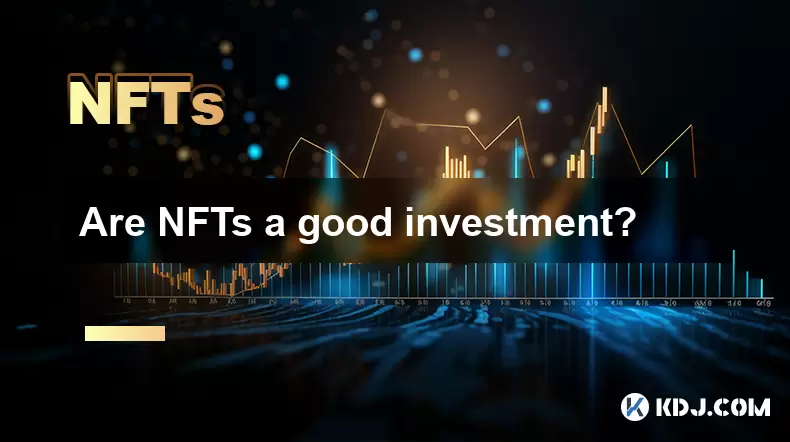
Understanding the Nature of NFTs
Non-Fungible Tokens (NFTs) are unique digital assets that represent ownership of a specific item or piece of content, often stored on a blockchain. Unlike cryptocurrencies such as Bitcoin or Ethereum, which are fungible and can be exchanged for one another, each NFT is distinct and cannot be replicated. This uniqueness has led to a surge in interest around NFTs, especially in the realms of digital art, music, collectibles, and virtual real estate.
The concept behind NFTs is not new, but their popularity exploded in recent years due to increased adoption of blockchain technology and growing interest in digital ownership. One of the key features of NFTs is that they provide verifiable proof of ownership and authenticity, which is particularly appealing to creators and collectors alike.
The Volatility of the NFT Market
Investing in NFTs comes with significant volatility. The market is highly speculative and influenced by trends, celebrity endorsements, and social media hype. Prices can skyrocket overnight based on a single tweet or fall dramatically when interest wanes. For example, some digital artworks that sold for hundreds of thousands of dollars have later lost most of their value.
This volatility means that investors must approach NFTs with caution. Unlike traditional investments like stocks or bonds, there is no guaranteed income or dividend from holding an NFT. Its value is entirely dependent on what others are willing to pay for it at any given time.
Evaluating the Utility Behind NFTs
Before investing in an NFT, it’s important to assess its utility. Some NFTs offer more than just bragging rights; they may include access to exclusive content, membership in communities, or even revenue-sharing models. NFTs tied to real-world utility tend to hold more long-term value compared to purely speculative assets.
For instance, certain gaming platforms issue NFTs that allow users to own in-game items, which can be traded or used across different games. These types of NFTs often maintain value because they serve a functional purpose within their ecosystems. Investors should look beyond aesthetics and consider what tangible benefits the NFT provides.
How to Buy and Store NFTs Securely
If you're considering investing in NFTs, understanding how to purchase and store them securely is essential. Start by setting up a digital wallet compatible with the blockchain platform where the NFT is hosted, such as MetaMask for Ethereum-based NFTs. You'll also need to acquire the appropriate cryptocurrency to make purchases.
Next, choose a reputable NFT marketplace like OpenSea, Rarible, or Foundation. Always verify the authenticity of the seller and review the NFT's history before making a purchase. Once acquired, store your NFTs in a secure wallet—preferably a hardware wallet—to protect against hacking or theft.
Here are the steps to get started:
- Download and install a trusted wallet application
- Fund the wallet with the required cryptocurrency
- Connect the wallet to a chosen NFT marketplace
- Browse and select the desired NFT
- Complete the transaction and confirm receipt
Risks and Scams in the NFT Space
While there are legitimate opportunities in the NFT space, there are also numerous risks and scams. Fraudulent projects, fake marketplaces, and phishing attempts are common. Investors should always conduct thorough research before committing funds.
One prevalent scam involves "rug pulls," where developers abandon a project after raising funds, leaving investors with worthless tokens. Another risk is copyright infringement, where someone mints an NFT without owning the rights to the underlying asset. Always ensure the creator is verified and the work is original.
Frequently Asked Questions
What determines the value of an NFT?
The value of an NFT is largely subjective and depends on factors like rarity, demand, perceived utility, and the reputation of the creator. Unlike traditional financial assets, there's no standard valuation model for NFTs.
Can I lose money investing in NFTs?
Yes, it's entirely possible to lose money. Due to the speculative nature of the market, prices can drop significantly. There’s also the risk of scams, fraud, or losing access to your NFT if you mismanage your wallet credentials.
Are all NFTs built on Ethereum?
No, while many NFTs are created on the Ethereum blockchain, other blockchains like Solana, Binance Smart Chain, and Flow also support NFTs. Each platform has its own standards and marketplaces.
Is it necessary to use a hardware wallet for NFT storage?
While not mandatory, using a hardware wallet adds an extra layer of security. Software wallets are convenient but more vulnerable to hacking. For high-value NFTs, a hardware wallet is strongly recommended.
Disclaimer:info@kdj.com
The information provided is not trading advice. kdj.com does not assume any responsibility for any investments made based on the information provided in this article. Cryptocurrencies are highly volatile and it is highly recommended that you invest with caution after thorough research!
If you believe that the content used on this website infringes your copyright, please contact us immediately (info@kdj.com) and we will delete it promptly.
- SUI Altcoin: Primed for Potential 100x Gains?
- 2025-07-20 04:50:12
- Panicked, Child, Swallowed Coin: A Parent's Worst Nightmare (and What to Do)
- 2025-07-20 04:35:12
- WLFI Token Tradability: World Liberty Finance's Bold Move Under Trump's Crypto Wing
- 2025-07-20 04:50:12
- Floki Price Rockets: Breakout Rally or Meme Coin Mirage?
- 2025-07-20 04:35:12
- Tinubu, the North, and Appointments: Too Little, Too Late?
- 2025-07-20 03:20:15
- Stellar Blade Hacked: When Crypto Scams Target Your Favorite Games
- 2025-07-20 03:50:12
Related knowledge
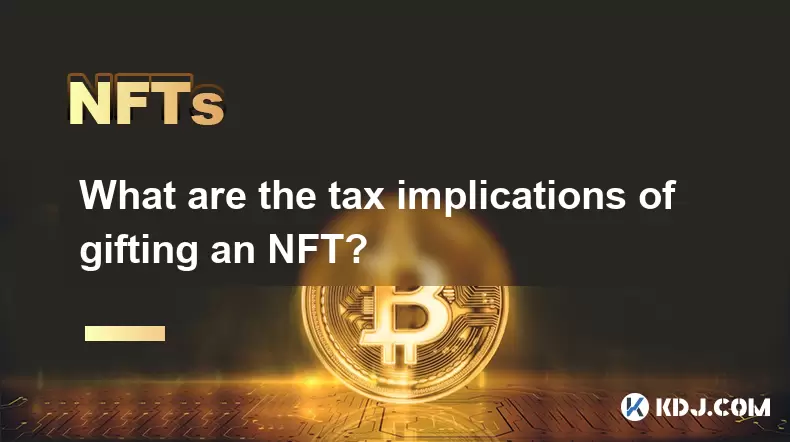
What are the tax implications of gifting an NFT?
Jul 19,2025 at 04:21am
Understanding the Basics of NFT GiftingGifting a Non-Fungible Token (NFT) involves transferring ownership from one individual to another without recei...
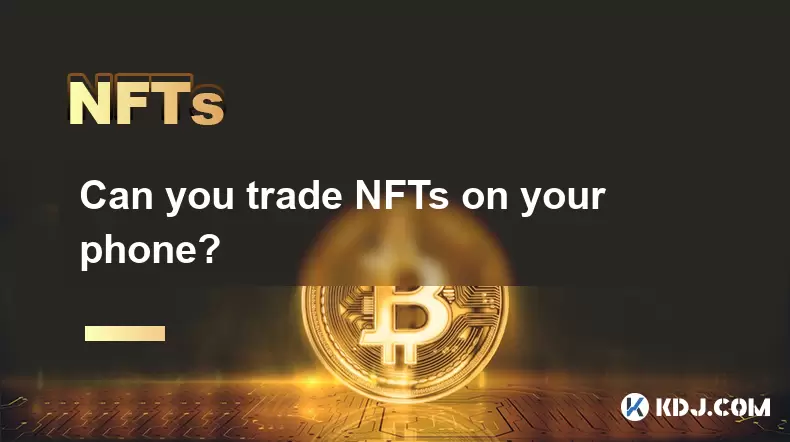
Can you trade NFTs on your phone?
Jul 18,2025 at 04:29am
Trading NFTs on Mobile DevicesYes, you can trade NFTs on your phone, and the process has become increasingly streamlined thanks to a variety of mobile...
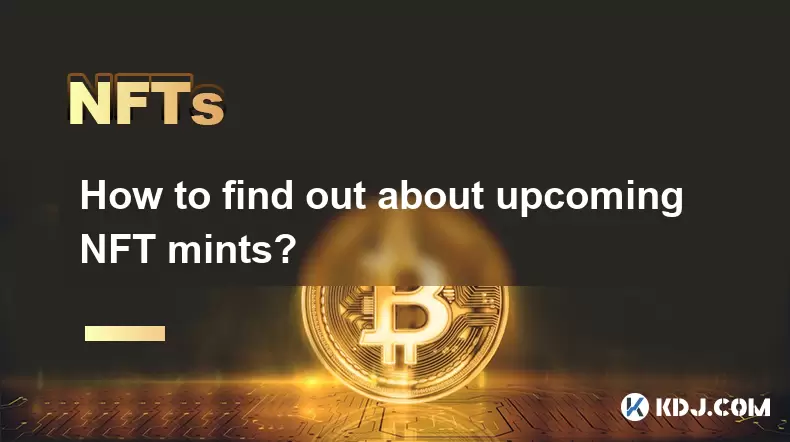
How to find out about upcoming NFT mints?
Jul 18,2025 at 11:50am
Exploring NFT Minting OpportunitiesUnderstanding the landscape of upcoming NFT mints is crucial for collectors, investors, and creators who wish to st...
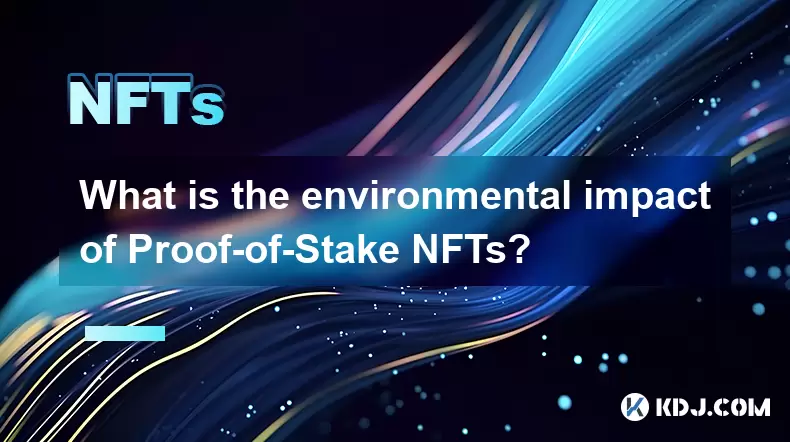
What is the environmental impact of Proof-of-Stake NFTs?
Jul 17,2025 at 07:14pm
Understanding the Basics of Proof-of-Stake NFTsProof-of-Stake (PoS) is a consensus mechanism used by blockchain networks to validate transactions and ...
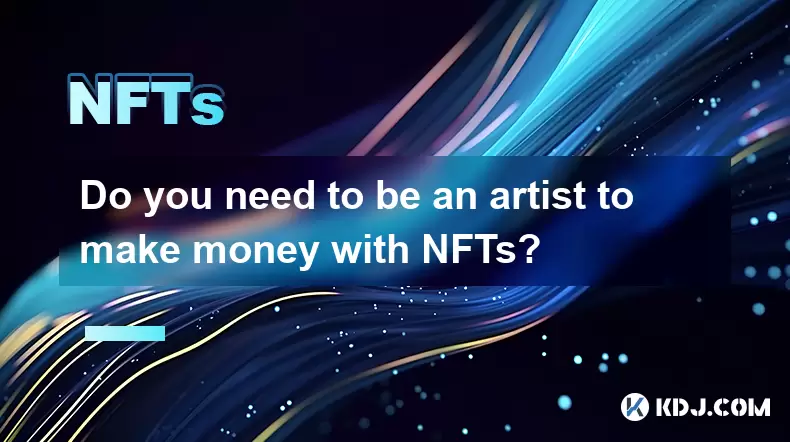
Do you need to be an artist to make money with NFTs?
Jul 19,2025 at 06:35am
Understanding the Role of Art in NFTsThe non-fungible token (NFT) market has grown rapidly, offering various opportunities for creators and investors....
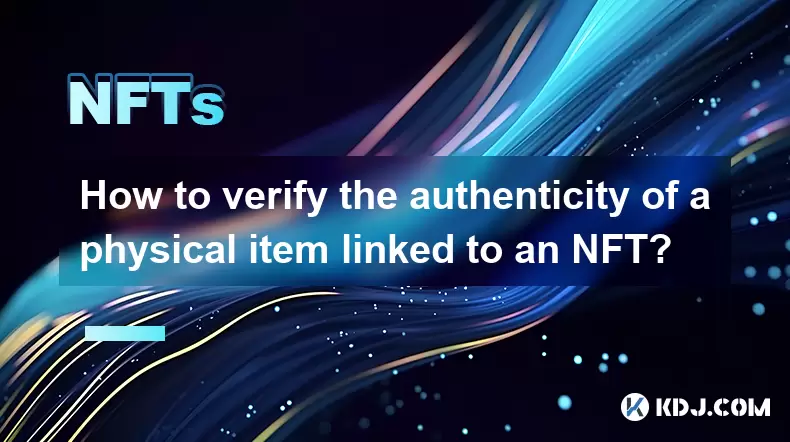
How to verify the authenticity of a physical item linked to an NFT?
Jul 18,2025 at 03:07pm
Understanding the Link Between NFTs and Physical ItemsWhen an NFT is linked to a physical item, it essentially acts as a digital certificate of owners...

What are the tax implications of gifting an NFT?
Jul 19,2025 at 04:21am
Understanding the Basics of NFT GiftingGifting a Non-Fungible Token (NFT) involves transferring ownership from one individual to another without recei...

Can you trade NFTs on your phone?
Jul 18,2025 at 04:29am
Trading NFTs on Mobile DevicesYes, you can trade NFTs on your phone, and the process has become increasingly streamlined thanks to a variety of mobile...

How to find out about upcoming NFT mints?
Jul 18,2025 at 11:50am
Exploring NFT Minting OpportunitiesUnderstanding the landscape of upcoming NFT mints is crucial for collectors, investors, and creators who wish to st...

What is the environmental impact of Proof-of-Stake NFTs?
Jul 17,2025 at 07:14pm
Understanding the Basics of Proof-of-Stake NFTsProof-of-Stake (PoS) is a consensus mechanism used by blockchain networks to validate transactions and ...

Do you need to be an artist to make money with NFTs?
Jul 19,2025 at 06:35am
Understanding the Role of Art in NFTsThe non-fungible token (NFT) market has grown rapidly, offering various opportunities for creators and investors....

How to verify the authenticity of a physical item linked to an NFT?
Jul 18,2025 at 03:07pm
Understanding the Link Between NFTs and Physical ItemsWhen an NFT is linked to a physical item, it essentially acts as a digital certificate of owners...
See all articles

























































































